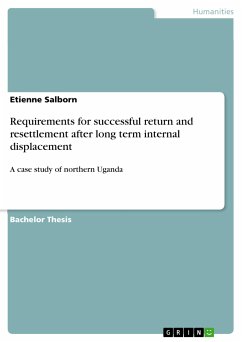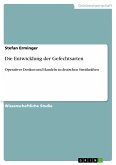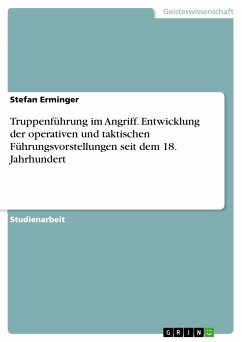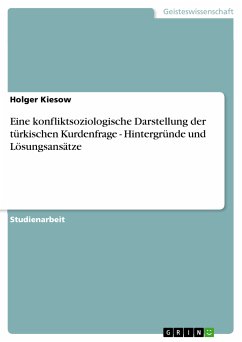Bachelor Thesis from the year 2010 in the subject Sociology - War and Peace, Military, grade: 2,0, Management Center Innsbruck (Nonprofit-, Sozial-, & Gesundheitsmanagement), language: English, abstract: The achievement of relative peace in Northern Uganda in 2006, was the stardom to end the mass internal displacement for over 1.8 million people. Return and resettlement became the major task for recovery and development. It is not only the time and intensity of the Northern Ugandan conflict influencing people’s decision to leave the displacement camps to return to their former place residence, but certain requirements need to be met as well as obstacles overcome. This study identifies and describes these requirements based upon a broad literature review. Basic services and infrastructure, such as health care, clean water sources and schools need to be reconstructed, as they are essential to ensure basic human needs. The most vulnerable and war affected individuals, such as the elderly, sick, disabled, widows and orphans are the ones most reluctant to return and require special assistance. Shelter construction and solutions to land disputes are most crucial, as they are the major obstacles hindering the return process. The average income in the first year after return is almost half than that, ç which was earned during the last year in camp, making monetary empowerment and food security important factors. Promised governmental resettlement packages have not been delivered sufficiently but are necessary, not only for successful return but also to compensate for the lack of justice. Governmental directives generate pressure for the internally displaced persons (IDPs) to leave the camps. Also, the land owners of the displacement camps want to see the IDPs gone, as they want to make use of their land. The major factor pushing people to leave the camps however are the unfavourable living conditions in the overcrowded camps. This goes hand in hand with the hope to find freedom in the place one can call home. The possibility to be in accordance with individual beliefs and in harmony with culture, nature and tradition, generates the wish to leave the displacement camps. Nevertheless, all requirements for successful return and resettlement after long term internal displacement in Northern Uganda are only valid if the uttermost condition of lasting peace and political stability can be guaranteed first.
Bitte wählen Sie Ihr Anliegen aus.
Rechnungen
Retourenschein anfordern
Bestellstatus
Storno









